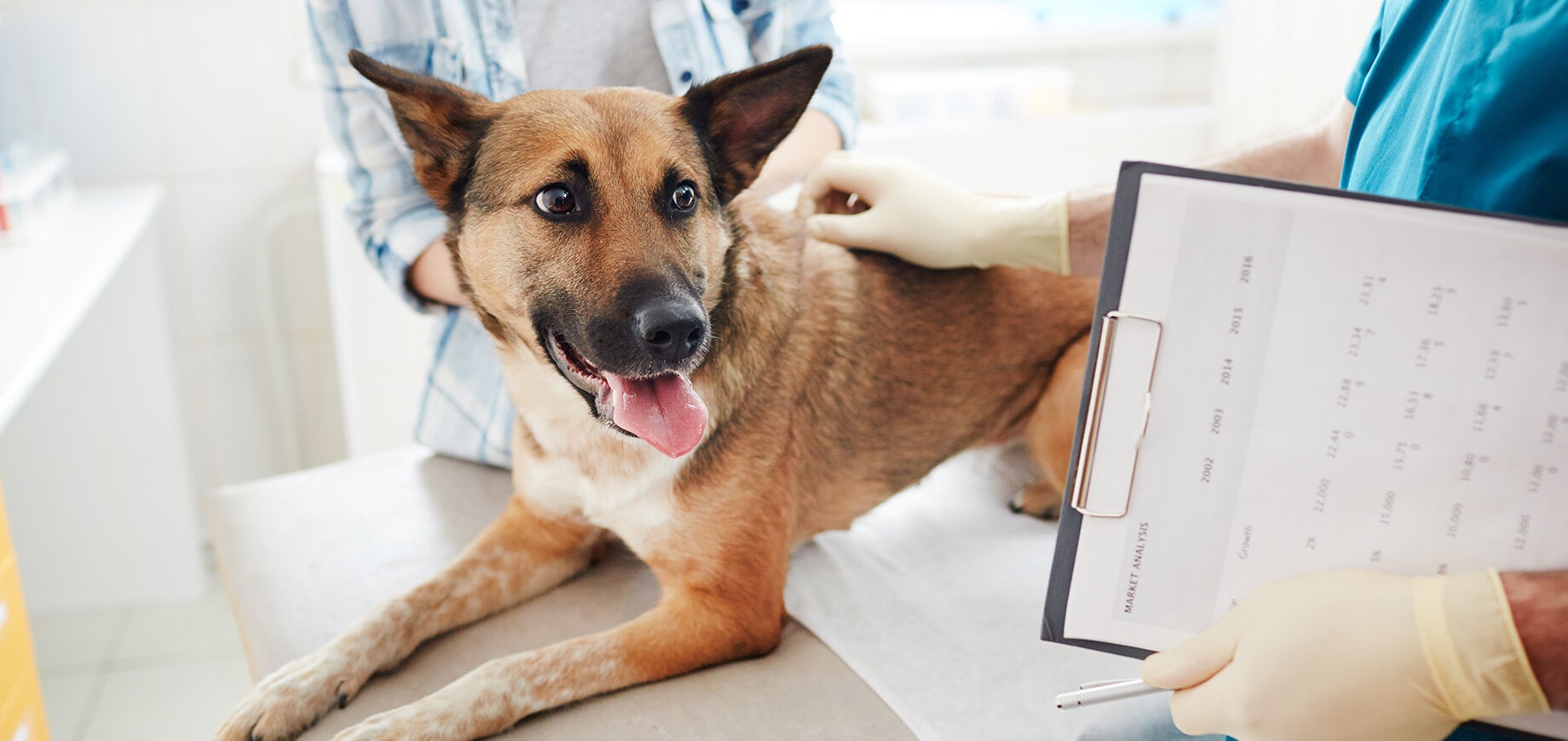Find products that match your dog’s needs

Canine Parvovirus (CPV) or parvo is a viral infection that causes severe inflammation of the intestines in dogs of all ages, leading to acute diarrhoea. While parvo can affect both dogs and puppies, puppies are at a higher fatality risk since parvo in puppies can also lead to inflammation of the heart (myocarditis), resulting in heart failure. As a pet parent, you should be aware of canine parvo symptoms to be able to spot early signs and get professional help before things escalate. Keep reading to learn more about this canine disease and what to do if your floof contracts the virus.
Dogs and puppies infected with parvo can be asymptomatic while remaining contagious. However, factors like stress and digestive issues can trigger signs of parvo in puppies and dogs. Veterinary testing is required for proper parvo diagnosis, but you must take your floof to the vet if it starts exhibiting symptoms such as:
Some serious signs of parvo include:
There are three stages of the parvovirus in canines– infection, incubation, and illness. After your pupper has contracted the virus, it will show no symptoms all through the incubation period which lasts for about 3 to 7 days. Once the virus enters the bloodstream, it will start attacking the bone marrow, white blood cells, intestines, and the GI tract. Soon, your dog will start feeling nauseous, and severe diarrhoea will follow. Once you witness these symptoms, waste no time and reach out for help immediately. While this disease is dangerous for both dogs and puppies, puppies are at a higher risk of danger because this virus can cause inflammation in their heart, resulting in heart failure.
Canine parvovirus is a highly contagious disease. While it is not airborne, it can live on many surfaces. Parvo is spread by contact with infected faeces or surfaces. Dogs don’t have to see the faeces to contract this virus, it can exist on the floor, on people’s clothes and hands, in kennels, and on the fur of a dog’s paws if they have come in contact with other contaminated dogs or surfaces.
Unfortunately, parvovirus can live in a dog’s environment for months. Since it is resistant to most disinfectants, it can lurk around for months on surfaces. However, diluted bleach and other specialised cleaners can kill the parvovirus and are used in veterinary hospitals.
Early diagnosis of parvo can help you provide adequate care for your dog before the condition becomes severe. There is no defined treatment for canine parvovirus, basic treatment revolves around providing enough medical assistance and care for the dog to fight the infection off. Supportive care for a dog infected with parvo can include:
Canines with parvovirus have a survival rate of around 75-80% if hospitalised on time and given plenty of supportive care. There are no at-home dog parvo treatments, but if your dog is not severely sick or if expensive treatment is not an option, you can opt for treatment on an outpatient basis with the help of your vet. While some dogs may be able to recover with the help of at-home dog parvo treatments, it is best to opt for hospitalisation or switch to a hospital if your dog’s symptoms become severe.
Very sick puppies can die because of septic shock or extreme dehydration. For this reason, proper medical care is highly recommended over at-home dog parvo treatments.
Here are some steps that you can take to prevent your dog or puppy from contracting parvo:
The best way to protect your dog from a fatal disease like parvo is to stay on top of vaccination cycles. Vaccinations are highly effective and can help avoid life-threatening experiences. Canine parvovirus vaccine is included in the core set of vaccines for dogs. A puppy should be given its first dose of the parvo vaccine when it is 8 years old and continue to take doses every two to four weeks until it turns 16 to 20 weeks old. A booster shot is recommended once it turns a year old and do the same once every three years post that.
Your dog must be given a parvo booster shot once it turns a year old and continue to do so once every three years. Schedule regular appointments with your vet for this booster shot. Apart from that, regular immunity checks with canine parvovirus antibodies are highly recommended.
As a pet parent, taking care of your pooch should be your top priority. Just by taking a few basic steps like vaccinations and regular check-ups, you can safeguard your dog’s health and give it the life it deserves. Now that you have read all about parvo and how to combat it, it’s time to schedule a health check-up for your floof.
Yes, vaccinated dogs can get parvo. The canine parvovirus vaccine provides immunity against the disease but is not 100% effective. However, staying up to date with vaccine doses can help increase your dog’s chances of fighting the disease.
Yes, a dog can get parvo a few years after completely recovering from the disease.
If you notice that your dog is feeling nauseous, has severe diarrhoea, is passing blood in its stools, or has abdominal pain and fever, rush it to the vet and get it checked.

Find a PEDIGREE® stockist
near you!
Buy online
Click to buy from any of the retailers below

